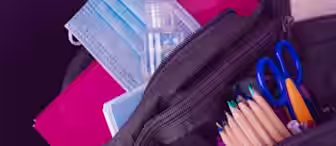Locations
With pupils back to face-to-face learning, Fieldfisher's education and charity law specialists consider what fee-paying schools can learn from lockdown.
The closure of UK independent schools for large chunks of the 2019/2020 and 2020/2021 academic years was a tough learning experience for many involved in the private education sector.
For parents, there was the shock realisation that most schools were not obliged to refund fees for missed face-to-face learning. For schools, there came the recognition that most of their contracts were far from pandemic-proof.
Many parents of privately-educated children did not receive any fee rebates for the 2019-2020 academic year, however others did receive reductions of varying amounts on future fees.
Independent schools were permitted to make their own decisions on fees, based on their financial situation – which for some was extremely precarious.
Some schools that closed buildings and furloughed staff made savings that they were able to pass on to parents, while others could not afford to lose the income used to pay salaries of teachers providing remote learning and required to maintain school buildings.
A number of schools were publicly criticised for not offering rebates and a few were chastised for pursuing parents for unpaid fees.
The consumer rights position
The school’s obligations to parents under the Consumer Rights Act 2015 are important for school governors to bear in mind when considering their position on fees.
This legislation provides consumers (who in the case of fee-paying schools will most likely be the parents of pupils) with various rights, potentially including the right for a price reduction where the services provided are less than those set out in the school's contracts.
Even though many schools provide comprehensive remote learning for pupils during lockdown periods, or where individual pupils are required to self-isolate, it is important to consider these obligations in respect of services not received by pupils, such as boarding, sport and extra-curricular activities.
The charity law position
It is probably fair to assume the most parents whose children attend independent schools view themselves as consumers and the schools primarily as businesses, providing education and other activities as a service in return for fees.
In fact, the majority of UK independent schools are established as educational charities and have limited financial reserves – something that many schools have been obliged to remind parents of since the Covid-19 pandemic began.
Section 106 of the Charities Act 2011 refers to 'ex gratia' payments, defined by the Charity Commission as "a payment that does not support its aims, but which [the charity feels] is morally right."
This section of the legislation has been frequently cited as the legal basis for charitable independent schools not returning fees to parents.
This is because, generally, charities that run independent schools have charitable objects to advance education.
Making refunds to parents, be that to share savings or for services not received, will not be in pursuit of those objects, and so could result in governors acting in breach of trust.
Where a payment would be an ex gratia payment, the charity trustees cannot make the payment without first applying to the Charity Commission for consent.
It will be up to the school's governors to make the case for why they feel morally compelled to make the payment in the circumstances.
This situation principally applies to situations where a school has already raised an invoice for fees.
Trustees of schools with charitable status are therefore only able to make decisions about fee reductions before invoices have been raised.
As mentioned above, there is an exception for schools that provide boarding and meals, the fees for which are a separate cost to the education the school's charitable status is there to facilitate under its charitable status, and which may be reimbursed without breaching charity law.
In 2020, when schools were ordered to close on 23 March, invoices had not yet been issued for the summer term and so schools were (legally) in a position to reduce fees for the final term of the year, if they chose to.
Those that decided to reduce fees were obliged to communicate this to the Charity Commission along with a statement explaining why they had made this decision.
Guidance published by the Charity Commission in April 2020 stated that any decision to reduce fees must be made in the best interests of the charity.
Non-payment of fees
Very few independent schools had pandemic exclusions in their contracts to cover circumstances where school property could not be accessed due to an outbreak of disease.
For most independent schools pre-Covid-19, access restriction clauses generally related to natural fires, floods or other kinds of natural disaster.
In these unprecedented circumstances, some parents withheld school fees on the basis that their children were not receiving the educational service stipulated in their contracts with the schools.
Schools have a choice about how they handle this issue. They can either treat it as a complaint against the school, which can be dealt with via the school's formal complaints process; or they can treat it as non-payment of an invoice and hand it over to the school's finance team to be collected as a debt.
It is up to the schools how to proceed, however it is judicious to consider how different courses of action will affect the school's reputation and its relationship with parents and other stakeholders.
Lessons from lockdown
Many independent schools have had to make difficult decisions about their funding arrangements since the outbreak of Covid-19 and several have collapsed into insolvency.
However, most schools with charitable status are run by expert educators with experienced finance teams and are overseen by dedicated trustees, who have worked together to ensure the schools' futures.
Of the schools that offered fee rebates, a number asked for these sums to be donated to bursary/hardship funds for other children to attend the school. This helps the school maintain its funding stream while allowing it to further its charitable purpose.
A lot of schools have had to review their contracts to include specific pandemic cover and provide for situations where pupils are unable to access school buildings. These revised contracts (generally) stipulate that fees are paid first and any issues raised afterwards as a complaint against the school.
In this respect, independent schools have realised the value of being able to provide excellent education remotely and having the flexibility to switch to online learning at short notice.
Providing equivalent quality teaching to that which pupils receive in school will likely reduce the risk of parents complaining about fees.
Finally, for schools that find themselves in financial difficulty, there is a duty on all trustees to be transparent about the financial situation the school is in and how money is going to be spent.
This is usually best communicated sensitively but clearly to parents at the end of the academic year, rather than as a running commentary.
This article was authored by Aarti Gupta, a consultant charity law specialist at Fieldfisher; Neil Palmer, corporate partner at Fieldfisher; and Tessa Waite, trainee solicitor at Fieldfisher. For more information on our education expertise, please visit the education page on the Fieldfisher website.








